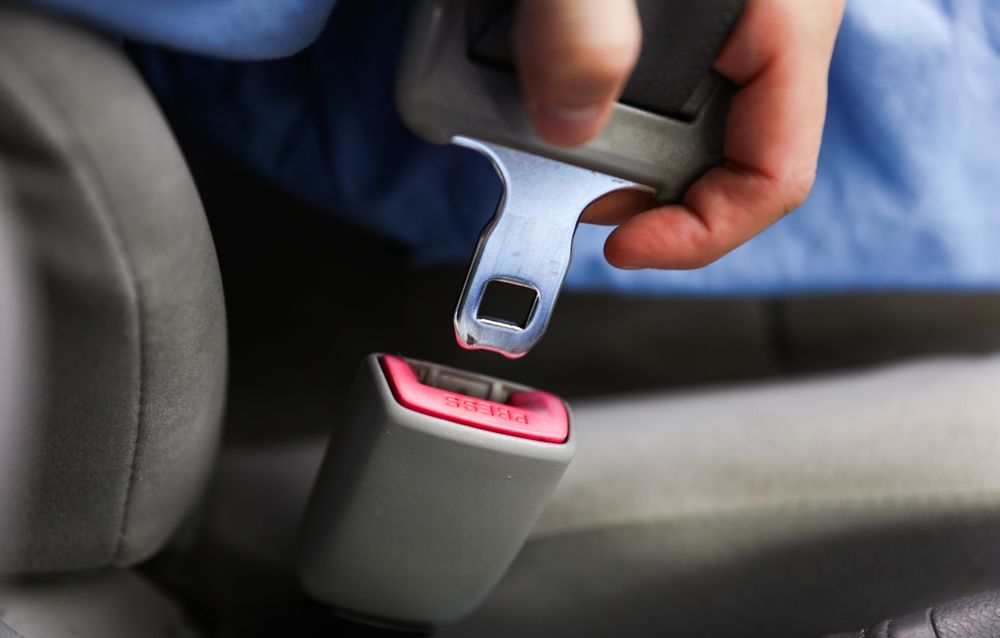Key Factors to Consider When Selecting an Atlanta Accident Attorney
If you've never worked with an attorney before, the thought of hiring one can be intimidating. But, as an accident victim struggling to get your life back on track, you really need to. Consulting an accident lawyer for legal guidance can make all the difference to the outcome of your case. So before you select a partner and file a claim, there are some important factors to contemplate that will help you choose the right one.
Choosing the right Atlanta accident attorney is crucial for securing a fair settlement after a personal injury. With so many options available, it can be challenging to find a lawyer equipped to handle complex issues like comparative negligence or catastrophic injury claims. This article explores key factors to consider, such as evaluating the attorney's experience in accident cases and verifying their credentials. By understanding these elements, readers will be better prepared to select a legal advocate who can effectively navigate their case and address their specific needs.
Evaluate the Attorney's Experience in Handling Accident Cases
When selecting an Atlanta accident attorney, evaluating their experience is essential. Begin by looking for attorneys who specialize in personal injury law, particularly in car accident cases or premises liability. It's important to check their length of practice in Georgia and confirm their expertise with cases similar to yours. This information will provide valuable insights into their capability to handle your injury law matters effectively.
Look for Specialization in Accident Law
When seeking an attorney for a vehicle accident case, it is crucial to prioritize those who specialize in accident law. A specialized attorney brings extensive knowledge of the nuances related to personal injury claims, including the intricacies involved in proving damages for pain and suffering. For instance, if an individual has sustained a spinal cord injury due to distracted driving, an attorney with focused experience can effectively advocate for the compensation needed to cover medical expenses and ongoing care.
Check the Length of Practice in Georgia
Checking the length of practice for an accident attorney in Georgia is vital for ensuring that the attorney has adequate experience with local laws and regulations. An attorney who has spent several years working specifically in such cases, including those involving driving under the influence or cases that require expert witness testimony, is likely to be more adept at handling complex legal matters that arise from accidents. For example, familiarity with the implications of driving over the speed limit in accident cases, particularly in areas like Buckhead, can significantly impact the potential verdict.
Confirm Expertise With Cases Similar to Yours
When selecting an Atlanta accident lawyer, it is crucial to confirm their expertise with cases similar to yours, especially if your situation involves a disability or a unique factor like road rage. An attorney experienced in relevant lawsuits will understand the specific challenges that may arise in your case and how to prepare for court effectively. For example, if your injury was caused by a road rage incident, legal representation with a background in such events can significantly impact the outcome of your claim.
Verify the Attorney's Credentials and Reputation
Verifying an attorney's credentials and reputation is crucial for selecting a qualified Atlanta accident attorney. This includes ensuring proper licensing to practice law in Georgia, investigating any past disciplinary actions, and researching professional affiliations and awards. These factors provide insight into an attorney's expertise in handling car accident injuries and navigating legal statutes related to fault, blood alcohol content, and jury considerations.
Ensure Proper Licensing in Georgia
Ensuring proper licensing in Georgia is fundamental when choosing an Atlanta accident attorney. An attorney must be licensed to practice law in the state, as this guarantees they are knowledgeable about Georgia personal injury laws and can effectively navigate the legal system. In cases involving drowsy driving or accidents with rideshare services like Lyft, an attorney with the appropriate credentials can leverage their expertise in securing necessary compensation for physical therapy and other related costs.
Investigate Any Disciplinary Actions
Investigating any disciplinary actions against an Atlanta accident attorney is a critical step in determining their credibility and reliability. Attorneys with a history of sanctions may not have the best interest of their clients at heart, especially those seeking compensation for auto accidents. For instance, car accident victims suffering from spinal cord injuries due to a hit and run deserve a dedicated advocate who adheres to professional standards and understands the complexities involved in their case.
Research Professional Affiliations and Awards
Researching professional affiliations and awards is an important step in assessing an Atlanta accident attorney's credibility. Attorneys who are members of reputable organizations may have access to resources and continuing education that keeps them updated on injury claim developments. Additionally, awards received for successful negotiation or positive client testimony can reflect their dedication to achieving favorable results, which is particularly valuable for individuals dealing with serious accidents, including those occurring in nursing homes.
Review the Attorney's Track Record of Success
Evaluating an Atlanta accident attorney's track record of success is vital for understanding their ability to secure financial compensation for clients. Key areas to consider include the settlement amounts achieved, their courtroom experience, and previous client outcomes. These insights provide a clear picture of the attorney’s capability to offer effective legal advice and navigate trials efficiently.
Ask About Settlement Amounts Achieved
When selecting an Atlanta accident attorney, it is important to ask about the settlement amounts they have achieved for past clients. An experienced lawyer will have a proven track record with various cases, including car accident claims and product liability disputes, where loss of consortium may be a factor. Understanding the attorney's history of securing financial compensation can provide insight into their ability to navigate insurance policies effectively, ensuring clients receive fair compensation for their injuries in motor vehicle incidents.
Inquire About Courtroom Experience
Inquiring about an attorney's courtroom experience is essential when selecting an Atlanta accident attorney. An attorney with substantial courtroom experience can effectively present evidence that demonstrates negligence, whether it involves a case where a driver ignored a stop sign or a wrongful death claim. This expertise not only highlights their ability to navigate legal proceedings but also reassures clients that they have a skilled advocate capable of fighting for the compensation they deserve.
Discuss Previous Client Outcomes
Discussing previous client outcomes is a pivotal step when selecting an Atlanta accident attorney, as it provides insight into the attorney's effectiveness in handling various cases, from auto accidents to slip and fall claims and dog bite incidents. An attorney with a proven track record will readily share testimonials and case results that highlight their ability to navigate complex insurance policies and secure fair compensation for their clients. Understanding how an attorney has successfully represented clients in similar situations empowers individuals to choose legal representation that meets their specific needs and expectations.
Assess Communication and Availability
Effective communication is crucial when choosing an Atlanta accident attorney for personal injury cases or car accident cases. It is essential to determine how the attorney communicates and confirm their availability for questions and updates. Establishing a comfortable rapport ensures clients feel supported throughout the legal process, minimizing the risk often associated with navigating claims following accidents.
Determine How the Attorney Communicates
Effective communication is crucial when choosing an Atlanta accident attorney. Clients should determine how the attorney conveys important information, especially regarding complex cases, such as those involving injuries from texting while driving incidents or pedestrian accidents at an intersection. Clear and consistent updates on the status of a case, including discussions about neck injuries resulting from accidents, can provide clients peace of mind and assurance that their legal matters are being adequately handled.
Confirm Availability for Questions and Updates
Confirming an attorney's availability for questions and updates is a critical step in selecting an Atlanta accident attorney. Clients dealing with traffic accidents, including those related to drunk driving or medical malpractice, may have urgent inquiries regarding their case. An attorney who prioritizes client communication ensures that individuals receive timely responses and stay informed about crucial developments, including the applicable statute of limitations for filing claims. This support can alleviate stress and enhance the overall experience, providing clients with the confidence that their legal matters are being handled with attention and care.
Ensure a Comfortable Rapport
Establishing a comfortable rapport with an Atlanta accident attorney is vital for effective communication and collaboration during a legal case. Clients dealing with car accidents often have specific needs, such as understanding how an attorney will handle witness testimonies and evidence related to property damage and wage loss. A strong attorney-client relationship fosters open dialogue, ensuring that clients feel heard and supported throughout their legal journey, which is essential for reducing anxiety and navigating the complexities of their cases.
Understand the Fee Structure and Costs
Understanding the fee structure and costs associated with hiring an Atlanta accident attorney is crucial for making an informed decision. Clients should learn about contingency fees, which typically involve a percentage of the awarded amount, ensuring that clients only pay if they win. Additionally, it is important to discuss any upfront costs and clarify expenses related to paralegal services and billing practices, providing transparency in financial obligations throughout the legal process.
Learn About Contingency Fees
Contingency fees are a common payment structure when hiring an Atlanta accident attorney, meaning clients only pay legal fees if the attorney successfully secures compensation. Typically, this fee is a percentage of the settlement or verdict, which aligns the attorney's interests with those of the client, motivating them to achieve the best possible outcome. Understanding this fee structure can relieve financial stress for clients, allowing them to focus on recovery without the worry of upfront legal costs.
Discuss Any Upfront Costs
Understanding any upfront costs associated with hiring an Atlanta accident attorney is vital for clients. While many attorneys work on a contingency fee basis, meaning they receive payment only upon a successful settlement, some may charge for initial consultations or require retainer fees. Clarifying these costs upfront allows clients to budget effectively and ensures they are aware of their financial obligations throughout the legal process.
Clarify Expenses and Billing Practices
Clarifying expenses and billing practices with an Atlanta accident attorney is essential for preventing unexpected financial burdens. Clients should inquire about any potential costs beyond the standard contingency fee, such as expenses for filing documents or obtaining medical records. Understanding these billing practices provides transparency and helps clients plan their budgets accordingly, ensuring they are fully informed about the financial aspects of their legal representation.
Read Client Testimonials and Seek Referrals
Reading client testimonials and seeking referrals are critical steps in selecting an Atlanta accident attorney. Exploring online reviews and ratings can provide insights into the attorney's reputation and effectiveness. Additionally, asking for references from past clients can illustrate the attorney's success in handling similar cases. Considering personal recommendations further enhances the decision-making process, ensuring a well-rounded evaluation of potential legal representation.
Explore Online Reviews and Ratings
Exploring online reviews and ratings is a crucial step in selecting an Atlanta accident attorney. Prospective clients should look for feedback from previous clients to gauge the attorney's reputation and effectiveness in handling personal injury cases. These testimonials often highlight the strengths and weaknesses of an attorney's practice, providing insights into their level of professionalism and success in securing fair compensation for clients.
Ask for References From Past Clients
Asking for references from past clients is a vital step in selecting an Atlanta accident attorney. This request offers insight into the attorney’s effectiveness and reliability, allowing potential clients to gauge how well previous cases were handled. When clients learn about others' experiences, especially those with similar circumstances, they can make more informed decisions regarding their legal representation, ensuring their needs are met and expectations are aligned.
Consider Personal Recommendations
Considering personal recommendations can play a significant role in selecting an Atlanta accident attorney. Friends, family, or coworkers who have experienced similar legal situations can provide valuable insights into their attorney's capabilities, professionalism, and success rates. These firsthand accounts can help potential clients feel more confident in their choice, as they rely on trusted sources who have navigated similar challenges in securing compensation for their injuries.



